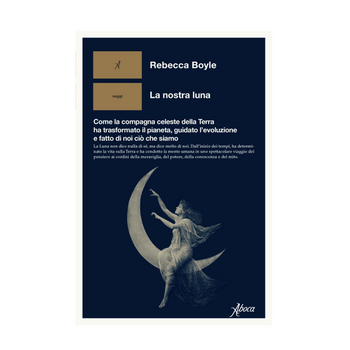You have no items in your shopping cart.
Medichesse Medichesse
La vocazione femminile alla cura La vocazione femminile alla cura
Erika Maderna Erika Maderna
€28,00
Throughout history, women have closely guarded the secrets of medicinal plants and have made a significant contribution to the development of medicine, fostered by an aptitude for observation and a deep respect for the natural rhythms and needs of the individual.
Throughout history, women have closely guarded the secrets of medicinal plants and have made a significant contribution to the development of medicine, fostered by an aptitude for observation and a deep respect for the natural rhythms and needs of the individual.
Availability:
In Stock
Sku: LIBMEDICHE2
ISBN/EAN: 9788855231329
Erika Maderna traces the evolution of women's medical and herbal culture from preclassical antiquity to the Italian Renaissance, revealing the variety of nuances: goddesses, pythias, sorceresses, midwives, herbalists, doctors, vestals, saints, alchemists and witches all represented various facets of the same face. A perhaps surprising representation of female autonomy, but one that was nonetheless painstakingly won.
Erika Maderna, is a graduate in Classical Literature from the University of Pavia, specialising in archaeology. She writes articles, translations and essays on classical culture and archaeology. With Aboca Edizioni she has published: Aromi sacri, fragranze profane. Simboli, mitologie e passioni profumatorie nel mondo antico (2009), Le mani degli dèi. Mitologie e simboli delle piante officinali nel mito greco (2016), Per virtù d’erbe e d’incanti. La medicina delle streghe (2018) and Con grazia di tocco e di parola. La medicina delle sante (2019).
Erika Maderna traces the evolution of women's medical and herbal culture from preclassical antiquity to the Italian Renaissance, revealing the variety of nuances: goddesses, pythias, sorceresses, midwives, herbalists, doctors, vestals, saints, alchemists and witches all represented various facets of the same face. A perhaps surprising representation of female autonomy, but one that was nonetheless painstakingly won.
Erika Maderna, is a graduate in Classical Literature from the University of Pavia, specialising in archaeology. She writes articles, translations and essays on classical culture and archaeology. With Aboca Edizioni she has published: Aromi sacri, fragranze profane. Simboli, mitologie e passioni profumatorie nel mondo antico (2009), Le mani degli dèi. Mitologie e simboli delle piante officinali nel mito greco (2016), Per virtù d’erbe e d’incanti. La medicina delle streghe (2018) and Con grazia di tocco e di parola. La medicina delle sante (2019).
Release date: 2022
Dimensions: cm 15 x 22,5
Pag. 200
Release date: 2022
Dimensions: cm 15 x 22,5
Pag. 200












